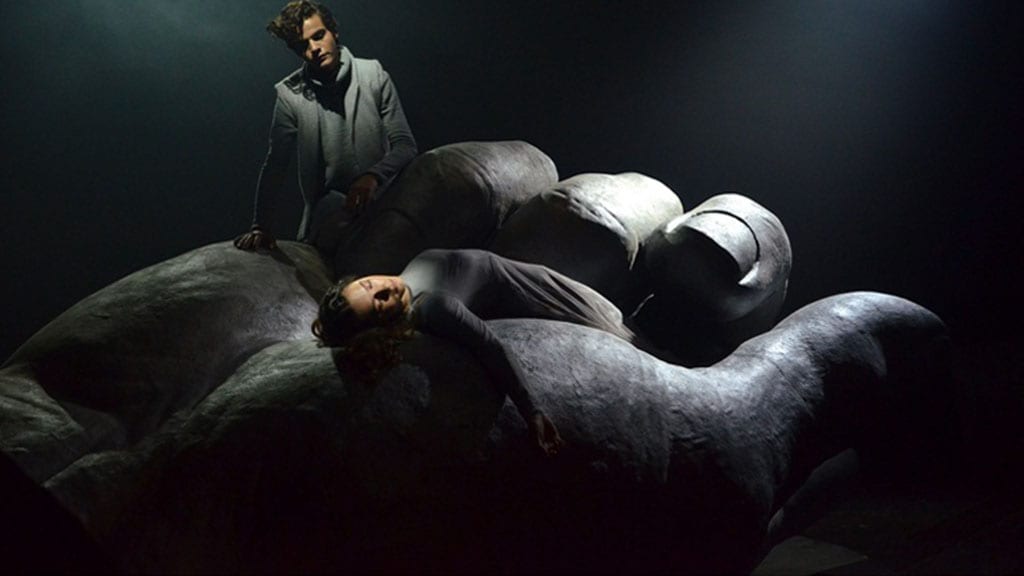Despite the popularity that he enjoys among Greek audiences, Shakespeare had been underrepresented in the Athenian stage for decades – the main reason lying in the difficulty to maintain large casts. Things have changed over the past years; at this moment, paying tribute to the great British playwright 400 years after his death, there are as many as eleven shows running in Athens – whether the original plays, or shows inspired by or based on the work of the British dramatist.
Lignadis’ is a contemporary rendering of the tragedy; against a backdrop of cement walls, staircases and metal scaffolding, the director sets the pure, innocent love of the young couple in sharp contrast with the noisy, dark, lustful, sexually charged world of the adults. The clear distinction between the two worlds (reinforced by the choice in costumes, music and the number of people on stage) is further established by Lignadis’ choice to have two – surprisingly good, as they turn out to be – teenage actors in the leading roles; undoubtedly the main asset of the play and Lignadis’ wisest choice in the show.
15-year-old Danae Vassilopoulou and 16-year-old Yannis Tsoumarakis bring on stage the freshness and fleeting aura of youth, accompanied with a subtlety in acting rarely seen in actors of their age. Their teenage looks match their outlook; Romeo, angry, sprays graffiti on the walls and Juliet is clumsy when it comes to wearing and walking on her mother’s high heeled shoes. On the other hand, talented but controversial Stathis Psaltis – an actor whose name has been associated with films of dubious artistic merit, sloppily produced in the 1980s – would have made a wonderful Nurse, if he hadn’t occasionally assumed the comic persona with which he has been identified and from which he cannot escape. Dimitris Piatas is very effective as Friar Lawrence, spicing up the role with his proclivity for comic touches. Elissavet Moutafi, as Lady Capulet, Juliet’s indifferent and almost alcoholic mother, is mediocre; so is Nikolas Stravopodis as Capulet, Juliet’s physically abusive father.
Lignadis’ rendering is interesting in many respects, although often overloaded with unnecessary references. I feel that the show would perfectly work without the vacuum cleaners and the – sometimes naive – comic devices that distract from the essence of the play, without adding anything to it. Equally, although Kapsalis’ poetic translation does work, it would perfectly do without the additional verses on love borrowed by Sophocles and modern Greek poet Odysseas Elytis. Shakespeare’s Romeo and Juliet is a monumental hymn to pure and uncompromising love and, as such, it does not need either backup by other texts, or any pointers to the universality of the theme.

